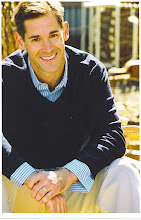
Sunday, October 21, 2007
Obama's next move after 2008...

A few years as governor would boost senator's presidential aspirations
A few random observations for a Sunday morning. Not a single vote has been cast, but the political pundits are talking about the inevitability of a Hillary Clinton nomination as the Democratic presidential candidate. Let's forgo a debate on her various vulnerabilities, Barack Obama's celebrated strengths and the many uncertainties of primary politics, and accept it as true for the moment. The question then becomes: What's next for Obama?
He could return to full-time work in the U.S. Senate. But history tells us that the longer a politician stays in the Senate, the bigger resume of votes he accumulates that can be turned against him in a national political campaign. Even if Clinton were elected president, the fact remains that Capitol Hill has not been as successful a launching pad for presidential aspirations as state capitals.
So perhaps Obama might think about directing his attention toward Springfield and run for governor in 2010. Gov. Blagojevich's scorched-earth policy there has alienated Democratic and Republican legislators alike, and a couple more years of the chaos we witnessed this year will have voters eager to embrace a leader at least capable of working harmoniously with his own party.
A few years running the state would give Obama the kind of executive seasoning that the electorate likes to see in candidates for president. It's a lack of experience that has been perceived as the Achilles' heel of his White House bid.
Suicide Is Not Painless

IT was one of those stories lost in the newspaper’s inside pages. Last week a man you’ve never heard of — Charles D. Riechers, 47, the second-highest-ranking procurement officer in the United States Air Force — killed himself by running his car’s engine in his suburban Virginia garage.
Mr. Riechers’s suicide occurred just two weeks after his appearance in a front-page exposé in The Washington Post. The Post reported that the Air Force had asked a defense contractor, Commonwealth Research Institute, to give him a job with no known duties while he waited for official clearance for his new Pentagon assignment. Mr. Riechers, a decorated Air Force officer earlier in his career, told The Post: “I really didn’t do anything for C.R.I. I got a paycheck from them.” The question, of course, was whether the contractor might expect favors in return once he arrived at the Pentagon last January.
Set against the epic corruption that has defined the war in Iraq, Mr. Riechers’s tragic tale is but a passing anecdote, his infraction at most a misdemeanor. The $26,788 he received for two months in a non-job doesn’t rise even to a rounding error in the Iraq-Afghanistan money pit. So far some $6 billion worth of contracts are being investigated for waste and fraud, however slowly, by the Pentagon and the Justice Department. That doesn’t include the unaccounted-for piles of cash, some $9 billion in Iraqi funds, that vanished during L. Paul Bremer’s short but disastrous reign in the Green Zone. Yet Mr. Riechers, not the first suicide connected to the war’s corruption scandals, is a window into the culture of the whole debacle.
Read more of Frank Rich @ New York Times
Louisiana elects first nonwhite governor since Reconstruction

U.S. Rep. Bobby Jindal became the nation's youngest governor and the first nonwhite to hold post in Louisiana since Reconstruction when he carried more than half the vote to defeat 11 opponents.
Jindal, the Republican 36-year-old son of Indian immigrants, had 53 percent with 625,036 votes with about 92 percent of the vote tallied. It was more than enough to win Saturday's election outright and avoid a November 17 runoff.
"My mom and dad came to this country in pursuit of the American dream. And guess what happened. They found the American Dream to be alive and well right here in Louisiana," he said to cheers and applause at his victory party.
His nearest competitors: Democrat Walter Boasso with 208,690 votes or 18 percent; Independent John Georges had 167,477 votes or 14 percent; Democrat Foster Campbell had 151,101 or 13 percent. Eight candidates divided the rest.
"I'm asking all of our supporters to get behind our new governor," Georges said in a concession speech.
The Oxford-educated Jindal had lost the governor's race four years ago to Gov. Kathleen Blanco. He won a congressional seat in conservative suburban New Orleans a year later but was widely believed to have his eye on the governor's mansion. Read on @ CNN Politics
Subscribe to:
Comments (Atom)
